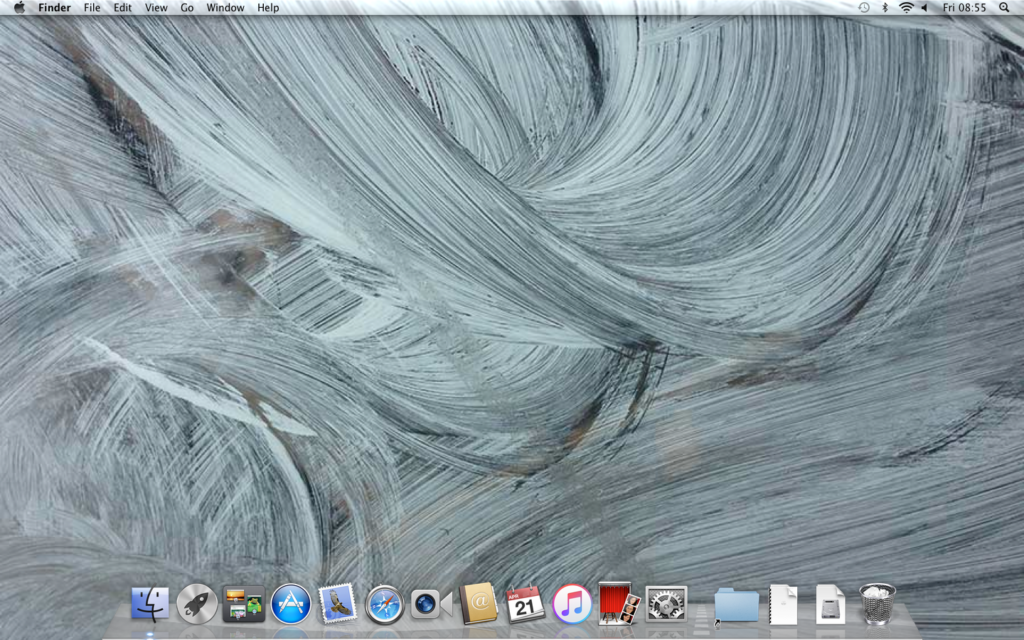June the 21st is National Writing Day. Actually, it’s also National Day of the Gong – truly – plus Music Day. And Selfie Day. Skateboarding Day. National Daylight Appreciation Day. I’m not making this up, though you have to assume someone is.
Still, I’m a writer so while the gong, music, skateboarding, selfie and daylight fans neglected to tip me off, I did get nudged about National Writing Day. And what whoever does these days wants is for writers to write about the view from their window.
There is a bit of me that rebels at any writing prompt even as I’ve seen how startlingly effective they can be. There is a bit of me that feels an urge to find a joke about what’s outside my window. The best I’ve got is I do have a garden that I don’t go out into and that this is for want of trying.
It’s not hilarious but it’s one of those very tiny changes in a familiar phrase that, at least to me, makes us reconsider the original. We say phrases that might as well be meaningless collections of sounds for all the attention we pay to the words. With no further ado, if we were hanging on the phone now, for instance, you’d be hearing my dulcet tones. I’ve sometimes ended an introduction of someone and asked audiences to welcome them onto the stage with more ado, with as much more ado as we can.
I hope my vocal tones can be dulcet when I want them to be, but I can see it in your face, you’re not sure what it actually means. You know it’s something vaguely praiseworthy or complimentary, yet you’ve never felt a compulsion to look up that it’s a pleasing sound. Nor me, not until two seconds ago.
That said, the ‘view from your window’ is a pretty clear idea, it is transparently obvious, if you will. Still, as soon as you say ‘window’ my mind flies to John Irving’s The Hotel New Hampshire which features the recurring and, in context, truly upsetting phrase ‘keep passing the open windows’. I also flit to a quote I heard from somewhere that the default screensaver in Hell is the Windows Blue Screen of Death.
And then I say that to you and for no useful reason my mind flicks on to a friend whose emails have suddenly begun announcing that they are virus-free. I see that and wonder at her still faffing about with viruses but doubtlessly she sees that and doesn’t think one single thing about it.
For you know that there is looking and there is seeing. When I was told about National Writing Day I was in the Library of Birmingham and the view from the window was exceptional but my mind was on a meeting I was on a break from. Above that, resting atop that and poking me from time to time, my mind was on entirely unrelated news that has been colouring how I’ve seen the entire week.
An hour later and the window I’m viewing through is my car’s. Then I was thinking about all this in the supermarket. I briefly returned to my own office which does have that little-seen garden out of the window. Now I’m in my living room where the The let feature of the view through the big windows is the tops of houses down the hill. And they are not as clear or vivid as the beautifully photographed view of Manhattan that turns out to be tonight’s screensaver on my TV set. It’s right underneath the window and that backlit rectangular window looks like it’s in higher resolution than the reality above it.
I might stare at that image for a bit, actually, and if I do then I’ll stare at it while absorbing the artistry of the photography plus remembering a thousand memories of New York and not quite remembering yet never being able to shed a million more impressions of the city that I’ve absorbed throughout my life.
The only thing I’m not doing with that window onto Manhattan is the same thing I didn’t do with the living room window, the office one, the car, the supermarket, the Library. I looked at them all and I looked through every one but I didn’t and don’t see them.
Not when my mind is buckled under a project. Doubtlessly this is the same for everyone but as a writer, I know that the view from a writers’ window is cloudy and shifting and unpleasant and scary and utterly beautiful and replete with potential though sodden with failure, a bellowing yearning to write better inescapably coupled to a need to pay the mortgage too.
And then just once in a while, something else that isn’t there.
Follow. After about 15 years of living here and working in that office, I have officially given up trying to get the wooden blinds to work and they’re just on the floor behind my long, curved desk and occasionally snagging on a power cable. So my windows are bare and you know what that means at night.
One particular night, easily around 3am, I was doing this yearning, reaching writing stuff on my first book. That was this non-fiction title about Alan Plater’s The Beiderbecke Affair. The deadline was so close, the word count was so tight – just 30,000 words and I’d given up about 2,000 of those in order to reprint a Beiderbecke short story of Alan’s – that it was frightening and exhilarating and just plain bloody exhausting.
Until of course it’s utterly black outside and it’s brightly lit in my office, so that window ceased to be a window and became a mirror instead. If I ever glanced up, I’d see my bookshelves and my messy research, but I didn’t look up.
Not until I had to sit back in my chair for a moment, shake out the tension in my hands and intend to get back to the typing.
In that moment, in that movement, the view from my window was not of either the real outside or a mirror image of my interior office. Instead, whatever it was, it had Alan Plater sitting back in his chair and telling me to get some sleep, it’s only a book.
That’s not the view from my window now or at any other time but that one single moment. Actually, it wasn’t really the view from my window even then, it was something inside me projecting out. But then you could say that of any view from any window we look through without seeing.
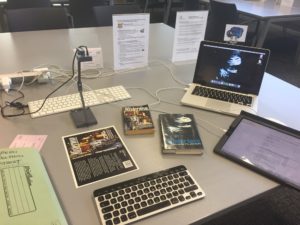 Shush, we’re in archive. It’s the
Shush, we’re in archive. It’s the 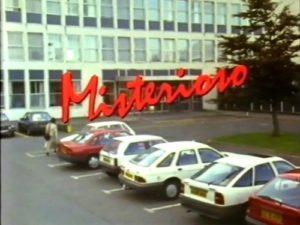
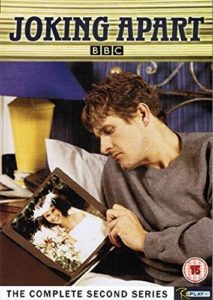
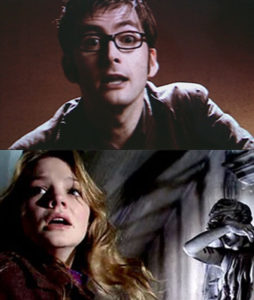 If you know the series, you know this episode and there’s a decent chance you think it’s at or near the best thing Doctor Who ever did. If you don’t know the series then no, sorry, you do: this is the story that introduced the Weeping Angels.
If you know the series, you know this episode and there’s a decent chance you think it’s at or near the best thing Doctor Who ever did. If you don’t know the series then no, sorry, you do: this is the story that introduced the Weeping Angels.